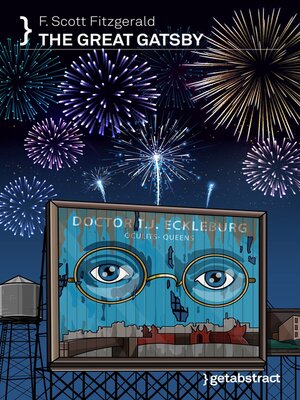
Sign up to save your library
With an OverDrive account, you can save your favorite libraries for at-a-glance information about availability. Find out more about OverDrive accounts.
Find this title in Libby, the library reading app by OverDrive.



Search for a digital library with this title
Title found at these libraries:
| Loading... |
An American Nightmare
"Let me tell you about the very rich," F. Scott Fitzgerald wrote in his short story The Rich Boy. "They are different from you and me." The author's obsession with and intimate knowledge of class issues, wealth, and their effects on society, shines through every line of his masterpiece The Great Gatsby. First published in 1925, it's an absorbing portrait of Jazz Age New York society in all its decadence and frenzied partying. The novel exposes the cynicism and inner emptiness of a class of people who seem to have it all but are empty. Jay Gatsby, who has gone from rags to riches via shady dealings, chases a materialistic dream which he mistakes for romantic love, only to lose everything when his fragile house of cards finally comes crashing down. Writing in 1927, two years before the onset of the Great Depression, Fitzgerald believed that a society built on the illusion of prosperity was ultimately doomed. "There has never been an American tragedy," he told a bemused reporter, "there have only been great failures." In the midst of the euphoric atmosphere of the pre-depression 1920s, his message didn't go down well. Today, The Great Gatsby is considered one of the finest accomplishments in American literature – a painfully beautiful and gripping testimony of wasted opportunities. Recent history underlines its continuing relevance and the urgency of its central themes.






